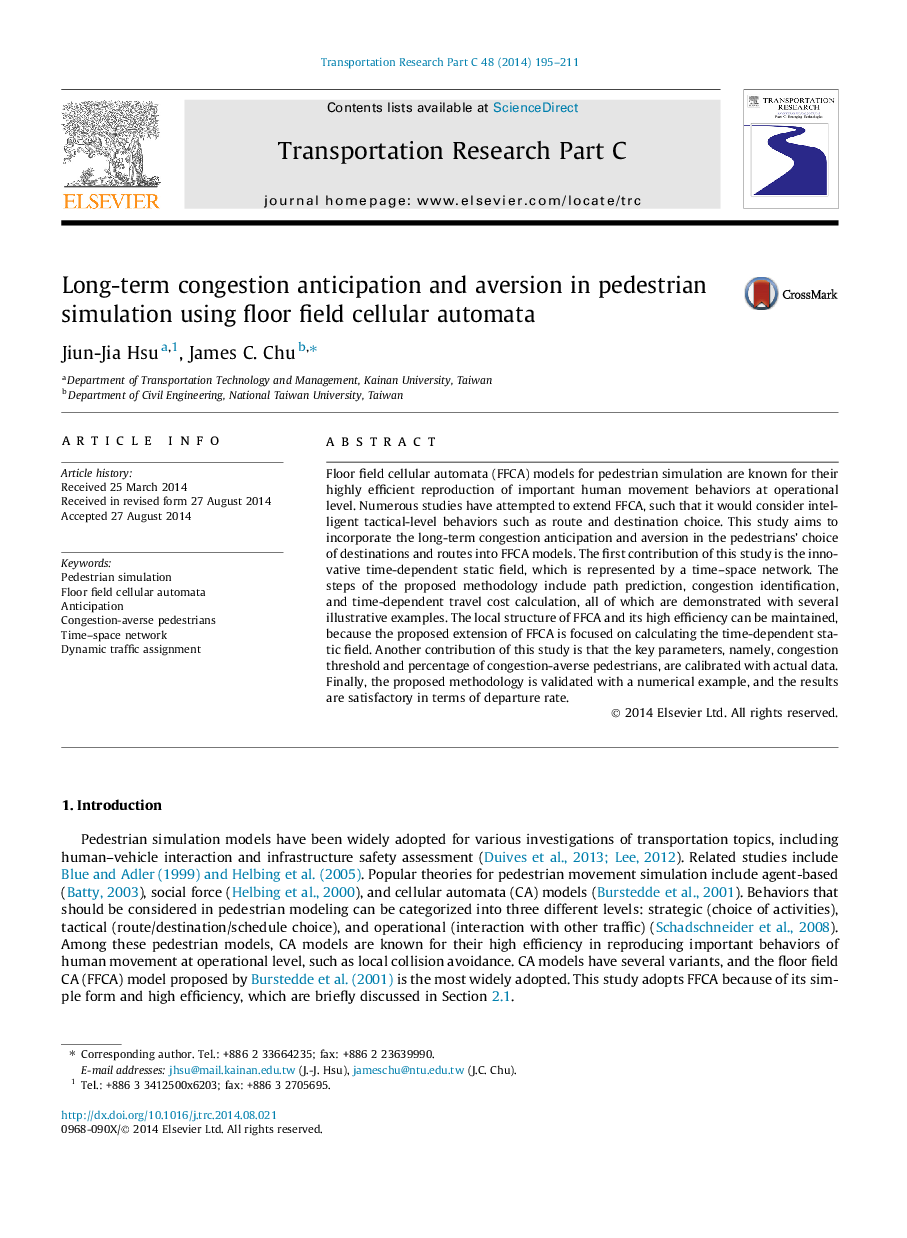| Article ID | Journal | Published Year | Pages | File Type |
|---|---|---|---|---|
| 6936960 | Transportation Research Part C: Emerging Technologies | 2014 | 17 Pages |
Abstract
Floor field cellular automata (FFCA) models for pedestrian simulation are known for their highly efficient reproduction of important human movement behaviors at operational level. Numerous studies have attempted to extend FFCA, such that it would consider intelligent tactical-level behaviors such as route and destination choice. This study aims to incorporate the long-term congestion anticipation and aversion in the pedestrians' choice of destinations and routes into FFCA models. The first contribution of this study is the innovative time-dependent static field, which is represented by a time-space network. The steps of the proposed methodology include path prediction, congestion identification, and time-dependent travel cost calculation, all of which are demonstrated with several illustrative examples. The local structure of FFCA and its high efficiency can be maintained, because the proposed extension of FFCA is focused on calculating the time-dependent static field. Another contribution of this study is that the key parameters, namely, congestion threshold and percentage of congestion-averse pedestrians, are calibrated with actual data. Finally, the proposed methodology is validated with a numerical example, and the results are satisfactory in terms of departure rate.
Related Topics
Physical Sciences and Engineering
Computer Science
Computer Science Applications
Authors
Jiun-Jia Hsu, James C. Chu,
